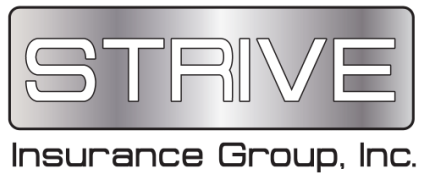|
Medical offices play a vital role in delivering healthcare services to patients, but they also face various risks that can impact their operations, patient safety, and overall success. Recognizing and effectively managing these risks is crucial for maintaining a safe and efficient environment for both healthcare providers and patients.
6/13/2023 Medical Office Property Insurance Operating a medical office requires careful consideration of various risks that can impact both the property itself and the overall business operations. From regulatory compliance to patient safety, medical offices face unique challenges that demand proactive measures to minimize potential risks. This article delves into the property risks associated with a medical office and offers insights on how to effectively manage them. Regulatory Compliance: One of the foremost concerns for a medical office is ensuring compliance with the ever-evolving healthcare regulations. Failure to adhere to guidelines set by governmental bodies, such as HIPAA (Health Insurance Portability and Accountability Act) and OSHA (Occupational Safety and Health Administration), can result in severe penalties and legal consequences. Non-compliance risks pose threats to the reputation, operational continuity, and financial stability of the medical office. Mitigation Strategies: a) Stay updated with regulations: Regularly monitor changes in healthcare regulations to ensure compliance and avoid costly violations. b) Train staff: Educate all employees about regulatory requirements, including privacy laws and workplace safety protocols. c) Document policies and procedures: Maintain thorough documentation of policies and procedures to demonstrate compliance efforts. Infection Control and Biohazard Management: Given the nature of healthcare facilities, preventing the spread of infections and managing biohazardous materials are critical priorities. Failure to establish robust infection control practices can endanger patient health, compromise staff safety, and tarnish the reputation of the medical office. Mitigation Strategies: a) Implement rigorous hygiene protocols: Establish strict hand hygiene, sanitation, and sterilization procedures throughout the facility. b) Train staff on infection control: Conduct regular training sessions to educate staff on best practices for preventing the spread of infections. c) Proper waste disposal: Adhere to guidelines for the safe disposal of medical waste, including sharps, pharmaceuticals, and biohazardous materials. Structural and Equipment Risks: A medical office's infrastructure and equipment play a pivotal role in maintaining a safe and functional environment. Structural vulnerabilities, faulty equipment, and utility failures can disrupt operations, compromise patient care, and pose safety risks. Mitigation Strategies: a) Regular maintenance and inspections: Develop a preventive maintenance schedule for equipment and conduct routine inspections of the facility's infrastructure. b) Emergency preparedness: Create contingency plans and conduct drills to ensure staff is well-prepared for emergencies, such as power outages or natural disasters. c) Adequate insurance coverage: Obtain comprehensive property insurance that covers structural damage, equipment failures, and business interruptions. Security and Privacy: Medical offices handle sensitive patient information, making them attractive targets for data breaches and theft. Security vulnerabilities can result in reputational damage, legal ramifications, and compromised patient trust. Mitigation Strategies: a) Robust data security measures: Implement secure network systems, encryption protocols, and firewalls to safeguard patient data. b) Access controls: Utilize access control systems to restrict physical entry to sensitive areas and ensure only authorized personnel have access to patient records. c) Staff training on privacy practices: Train employees on HIPAA regulations and privacy best practices to ensure the confidentiality of patient information. Effectively managing property risks in a medical office is vital for the safety of patients, staff, and the overall success of the practice. By proactively addressing regulatory compliance, infection control, infrastructure, and equipment risks, as well as security and privacy concerns, medical offices can mitigate potential challenges and create a safe and trusted environment for patients and employees alike. A medical office building typically requires several types of property insurance coverage to adequately protect against various risks. Here are some common insurance coverages for medical office buildings:
Building Property Insurance: This coverage protects the office building itself, including its structure, walls, roof, and permanent fixtures, against perils like fire, lightning, vandalism, and certain natural disasters such as storms or earthquakes. Contents Insurance: This insurance covers the contents within the office building, including furniture, equipment, inventory, and other business belongings. It safeguards against perils like fire, theft, or water damage. Business Interruption Insurance: This coverage provides financial protection for the loss of income and additional expenses if the office building becomes uninhabitable or operations are interrupted due to a covered event. It can help with ongoing expenses, employee salaries, and temporary relocation costs. Liability Insurance: Office buildings also need liability insurance to protect against claims of bodily injury or property damage that occur on the premises. This coverage can cover legal expenses, medical costs, and damages awarded in a lawsuit. Cyber Insurance: In today's digital age, cyber insurance is crucial for businesses, including office buildings. It helps protect against financial losses and liabilities arising from data breaches, cyberattacks, or other cyber-related incidents that may compromise sensitive information. Flood Insurance: Depending on the location of the office building, it may be necessary to obtain separate flood insurance. Standard property insurance policies usually exclude coverage for flood-related damage, so it's important to assess the building's flood risk and obtain appropriate coverage if needed. It's essential to consult with a licensed insurance professional or broker who specializes in commercial property insurance to determine the specific coverages and limits that are appropriate for your office building, as the requirements may vary based on factors such as location, size, and occupancy. |
Archives
June 2024
Categories
All
|



 RSS Feed
RSS Feed
6/28/2023
0 Comments